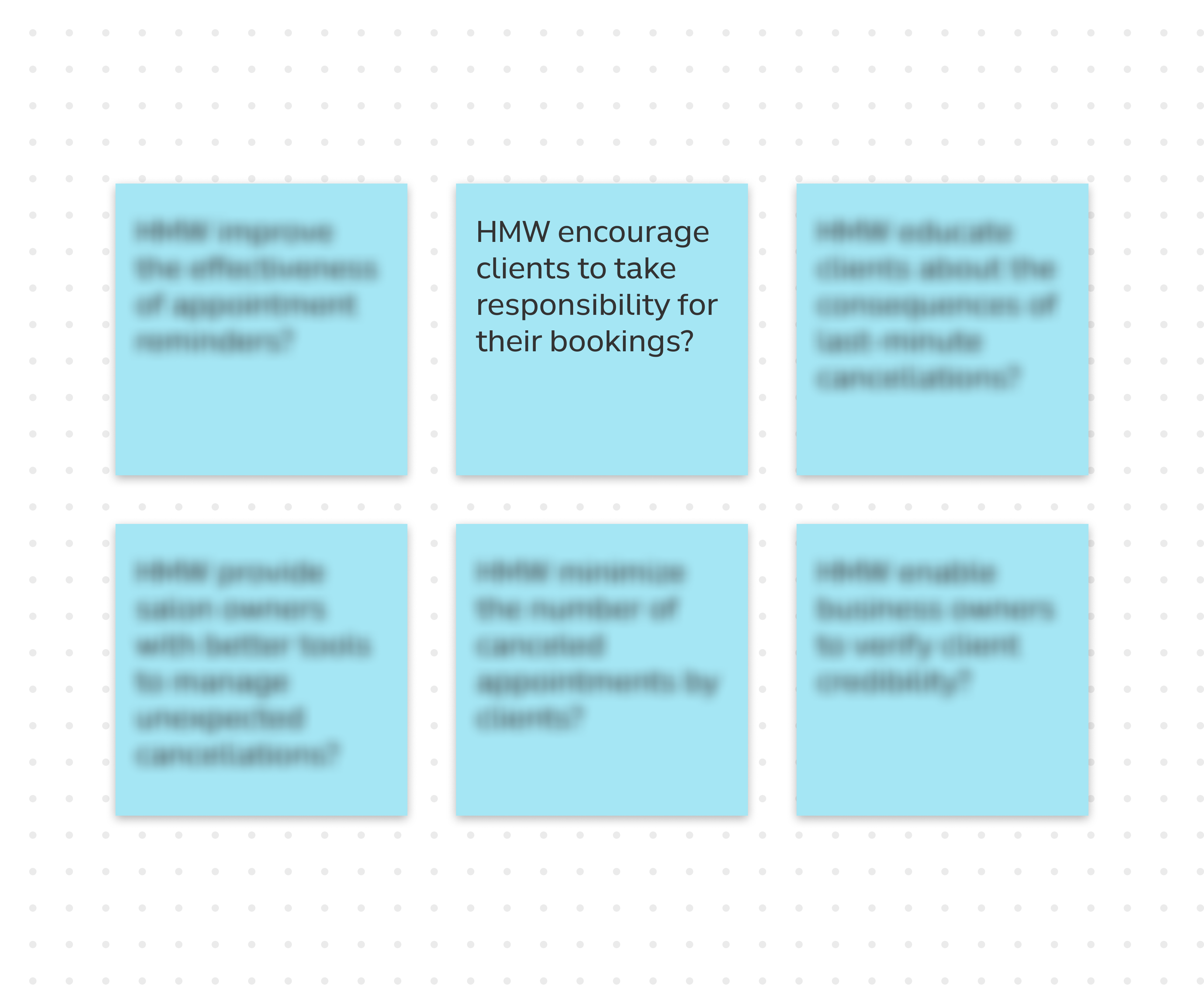How I Helped Reduce No-Shows by 42% for Salon Owners - and Boosted Booksy Premium by 31%
problem:
Anna, a salon owner, struggled with last-minute cancellations that disrupted her schedule and revenue.
Anna, a salon owner, struggled with last-minute cancellations that disrupted her schedule and revenue.
solution:
Implementation of a dynamic deposit system and customer reliability ratings enabled her to regain control over her bookings and to a 28% revenue increase in just three months.
Implementation of a dynamic deposit system and customer reliability ratings enabled her to regain control over her bookings and to a 28% revenue increase in just three months.
MY ROLE
- Interviewed salon owners to understand booking behavior and pain points
- Designed a deposit-based booking system and reliability ratings, directly addressing the problem.
- Designed a deposit-based booking system and reliability ratings, directly addressing the problem.
42%
fewer no-shows resulted from dynamic deposits, which increased customer commitment and minimized last-minute cancellations.
31%
more Booksy Biz Premium subscriptions were driven by the introduction of dynamic deposits as a premium feature.
How I Helped Reduce No-Shows by 42% for Salon Owners - and Boosted Booksy Premium by 31%
problem:
Last-minute cancellations and no shows that cost salon owners revenue and disrupted schedules.
Last-minute cancellations and no shows that cost salon owners revenue and disrupted schedules.
solution:
Created dynamic deposits tied to client reliability and a private Trust Score, giving owners control and transparency.
Created dynamic deposits tied to client reliability and a private Trust Score, giving owners control and transparency.
MY ROLE
- Led user research with 15 in-depth interviews
- Qualitative research, with analysis 500+ bookings
- Designed prototypes and created the final UI
- Close collaboration with real salon owners to validate solutions
- Qualitative research, with analysis 500+ bookings
- Designed prototypes and created the final UI
- Close collaboration with real salon owners to validate solutions
42%
fewer no-shows resulted from dynamic deposits, which increased customer commitment and minimized last-minute cancellations.
31%
more Booksy Biz Premium subscriptions were driven by the introduction of dynamic deposits as a premium feature.













